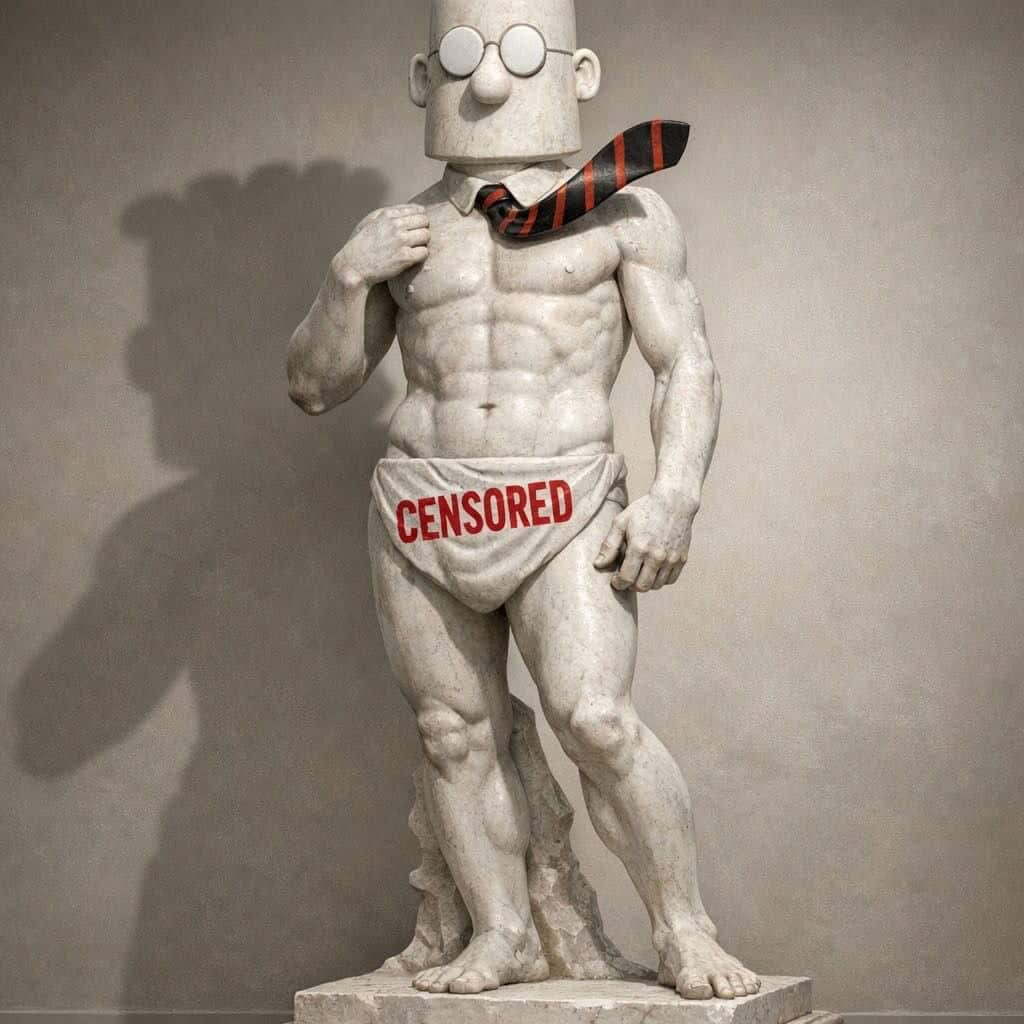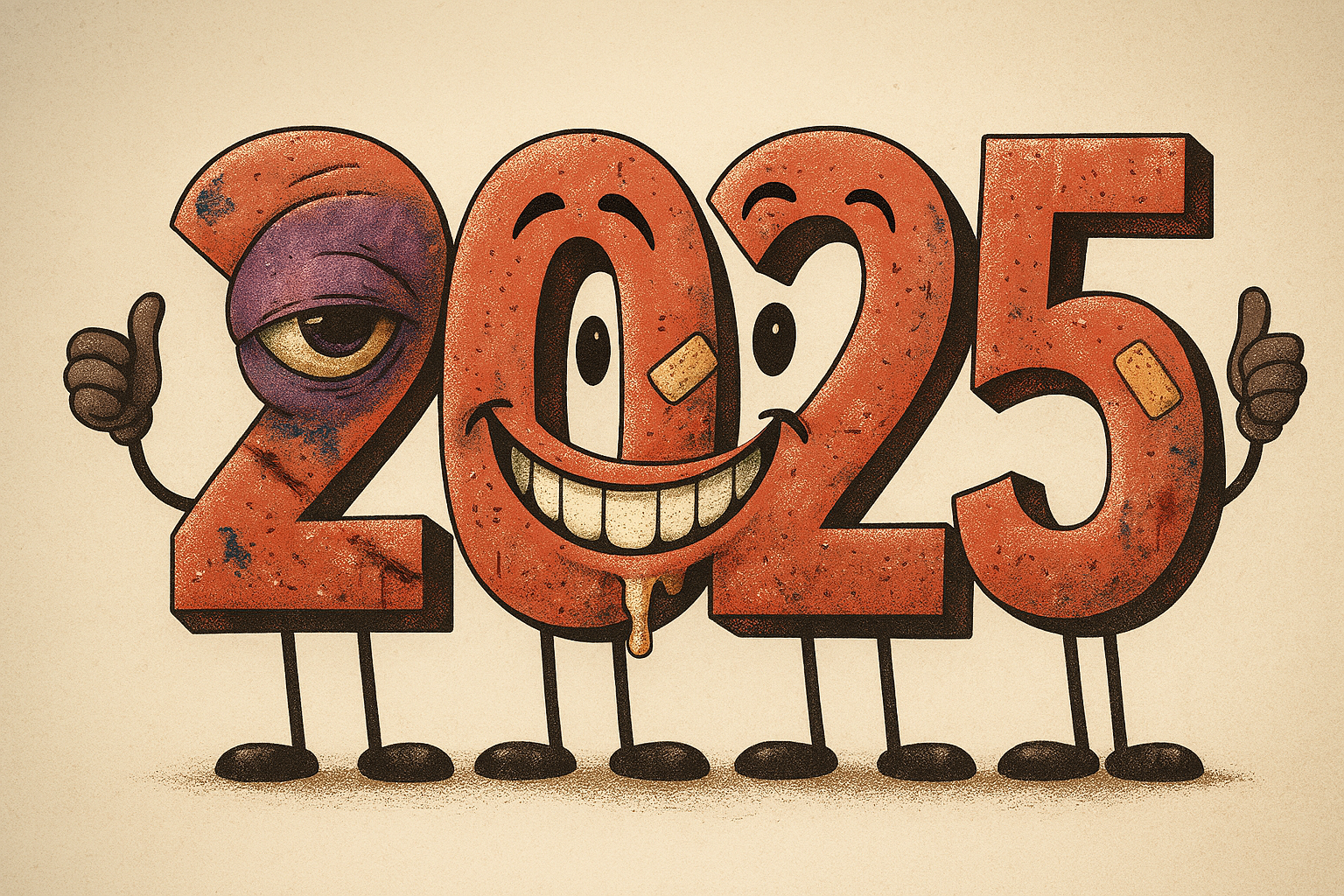It would seem that I’ve suffered an epiphany in recent days.
For what it’s worth, the palm of my right hand and the spot on my forehead where the two collided when the realization set upon me are still a little sore. None the less, my temporary discomfort as a result of the event brings me here to share with the masses the valuable information I’ve developed.
In fact, the last time such a game changing idea took place, a girl sitting in some café in Rickmansworth figured out what was going wrong with things and had a brilliant idea on how to make things better.
“Sadly, however, before she could get to a phone to tell anyone about it, a terrible, stupid catastrophe occurred, and the idea was lost forever.”


It’s been awhile since I’ve made a reference (cryptic or otherwise) to one of my favorite books. Along with my ongoing desire to stand on a corner in Winslow, Arizona, or under the clock which is just outside of the former D.H. Holmes Department Store on Canal Street in New Orleans, I now have the bright idea to sit in some café in Rickmansworth in hopes of experiencing a game changing epiphany before the Vogon Constructor Fleet arrives and executes its role in the aforementioned stupid catastrophe.
Okay, let’s get back to that epiphany.

Fatigue, restlessness, lack of concentration, hypervigilance, and racing thoughts are all symptoms of anxiety.
Frequent urination, extreme fatigue, slow healing cuts and bruises, and blurry vision are symptoms of diabetes.
Abdominal swelling, fever, loss of appetite, and inability to crop dust an elevator are symptoms of appendicitis.
Shame, guilt, and rationalization are symptoms of cognitive dissonance.
For those of you playing the home game, cognitive dissonance is the mental discomfort (psychological stress) experienced by a person who holds two or more contradictory beliefs, ideas, or values. This discomfort is triggered by a situation in which a person’s belief clashes with new evidence perceived by the person. When confronted with facts that contradict beliefs, ideals, and values, people will find a way to resolve the contradiction to reduce their discomfort.
A smoker who knows that cigarettes cause cancer, yet keeps smoking experiences cognitive dissonance.
The epiphany I’ve had states that people who are experiencing cognitive dissonance subscribe to conspiracy theories when rationalizing things to ease their psychological stress.
Okay I just had another epiphany.
Cognitive dissonance comes as a result of an epiphany.
That just happened, people. I didn’t do that on purpose at all.
Let’s get back to the conspiracy theory discussion before my verbal brilliance gets too spooky.
Consider the following conspiracy theories:
The 9/11 attacks were an inside job.
Barack Obama wasn’t born in the U.S.
Donald Trump colluded with the Russians to win the 2016 Presidential election.
All three of these charges are politically motivated theories which were designed to cast three different U.S. Presidents in a bad light sufficient enough to have them removed from office.
All three of these charges got a lot of traction when they were presented.
There is enough evidence that the only conspiracy involved in carrying out the 9/11 attacks was that between Osama Bin Laden and his sycophantic minions. There is not enough evidence which supports that parties within the U.S. were involved in the attacks that day.
There is enough evidence that Barack Obama was born in the U.S. There is not enough evidence which suggests he was born elsewhere. Even if there was, what would we do with that little tidbit today? Roll back every Executive Order and piece of legislation he signed because he wasn’t qualified to do so?
There is enough evidence that validates the Trump win in 2016. This last Friday (03/22/2019), Robert Mueller announced that he was wrapping up his investigation of whether Trump colluded with the Russians in order to win the election. Furthermore, he went on to say that no additional indictments would be made as a result of that investigation. It should go without saying that all of the indictments which came out of the investigation were filed against associates of the President, and not a one of them had anything to do with collusion. With that in mind, there is not enough evidence which suggests that Donald Trump colluded with anyone other than the American electorate to win the Presidency.
All three of these theories were born of parties who were emotionally invested against the success of George W. Bush, Barack Obama, and Donald Trump. Those who put the theories forward suffered cognitive dissonance when they could not square in their own minds that the elections of 2000, 2008, and 2016 had not gone their way. To ease the stress, they manufactured a way to rationalize their loss by suggesting that the winners of those three elections were beneficiaries of ill-gotten gains.
In the coming weeks we’re going to see more and more details of the Mueller report come out. As those details come out and we learn that there was no collusion, we will see more cognitive dissonance. I don’t know that it will be on the order it was when Trump initially won the election, but it will be noticeable. We’ll see a push for more investigations of the President which transcend the collusion angle. We’ll see new accusations. We’ll see more talk about impeachment or the invocation of the 25th Amendment.
Regardless of the details we do learn from the Mueller report, we Americans should be able to take solace in one specific fact. Our President has been accused of working with the Russians to change the American landscape. After an extensive investigation which lasted nearly two years, it’s been determined that our President was not working for the bad guys.
For those of you who are having issues with dealing with that epiphanic thump on the head, you now know the term for what you’re experiencing.







